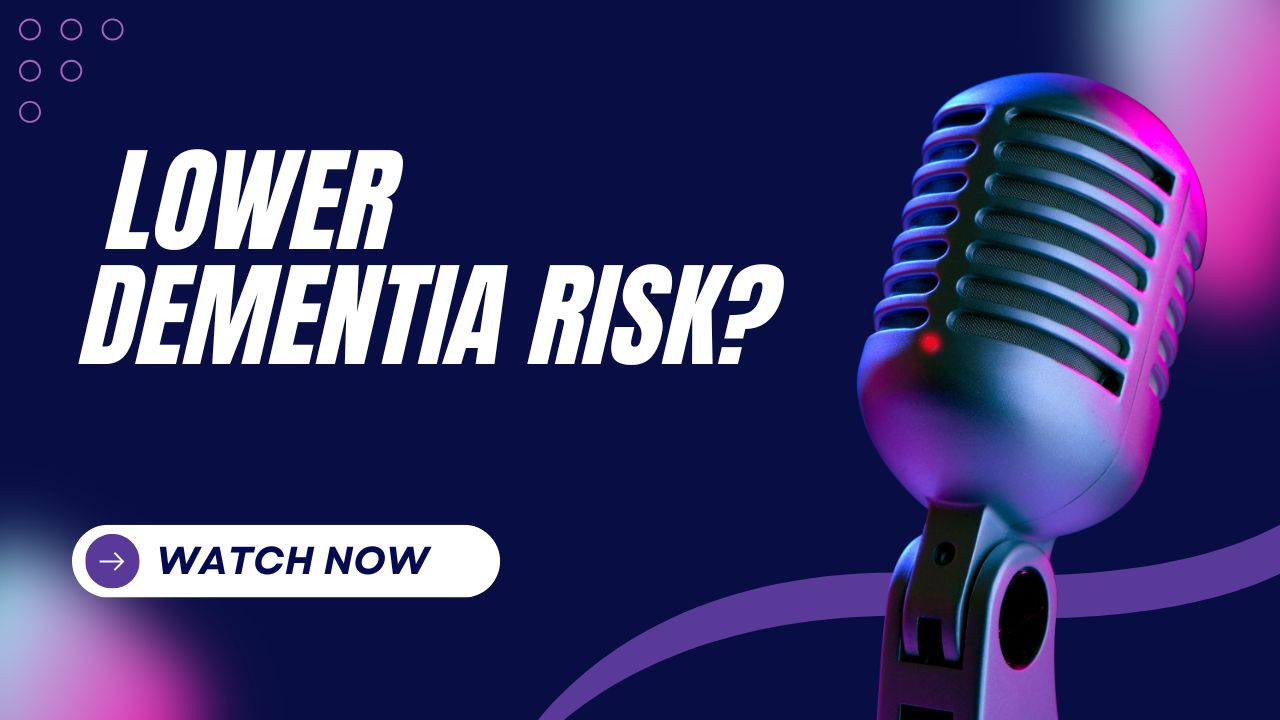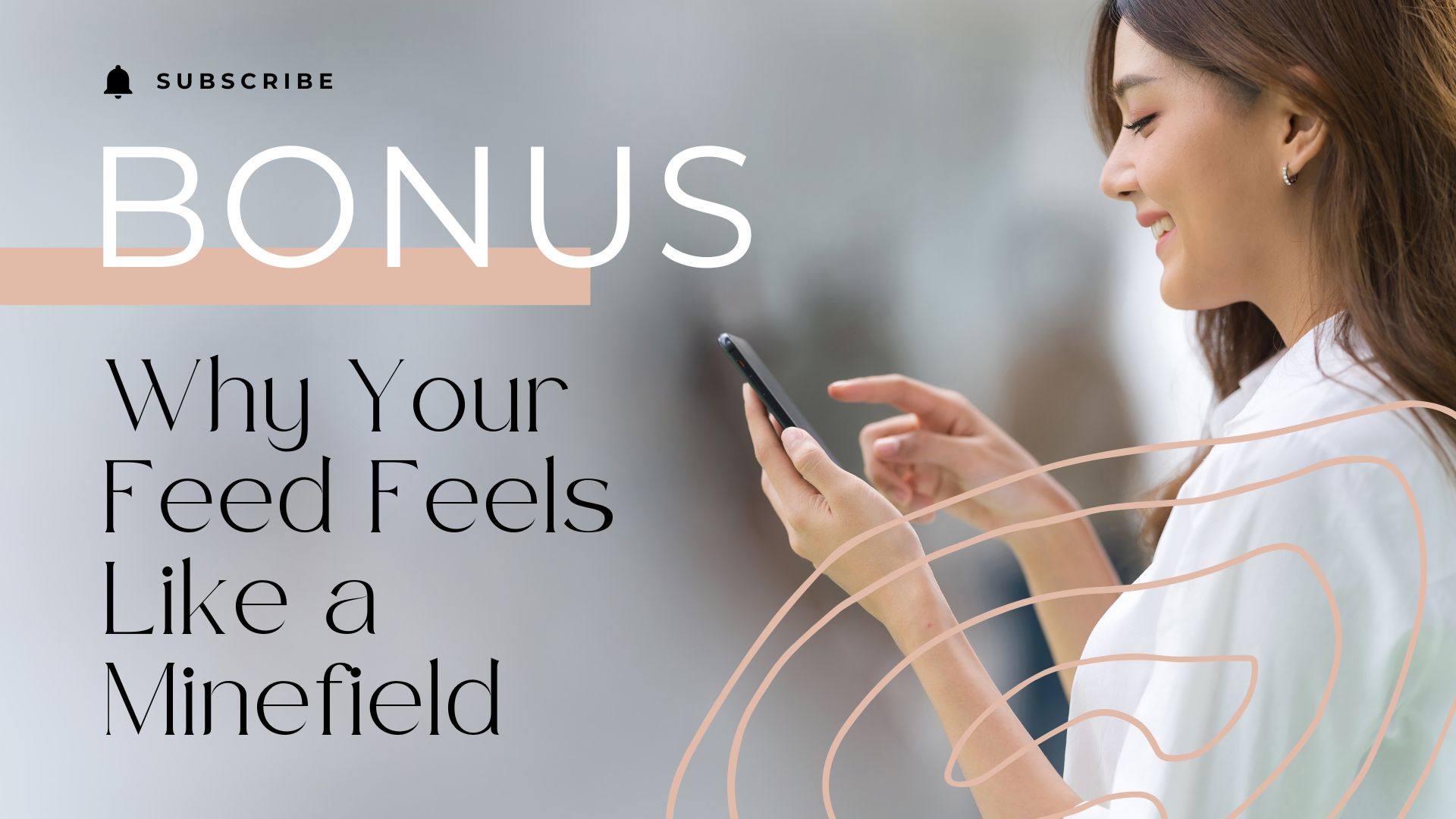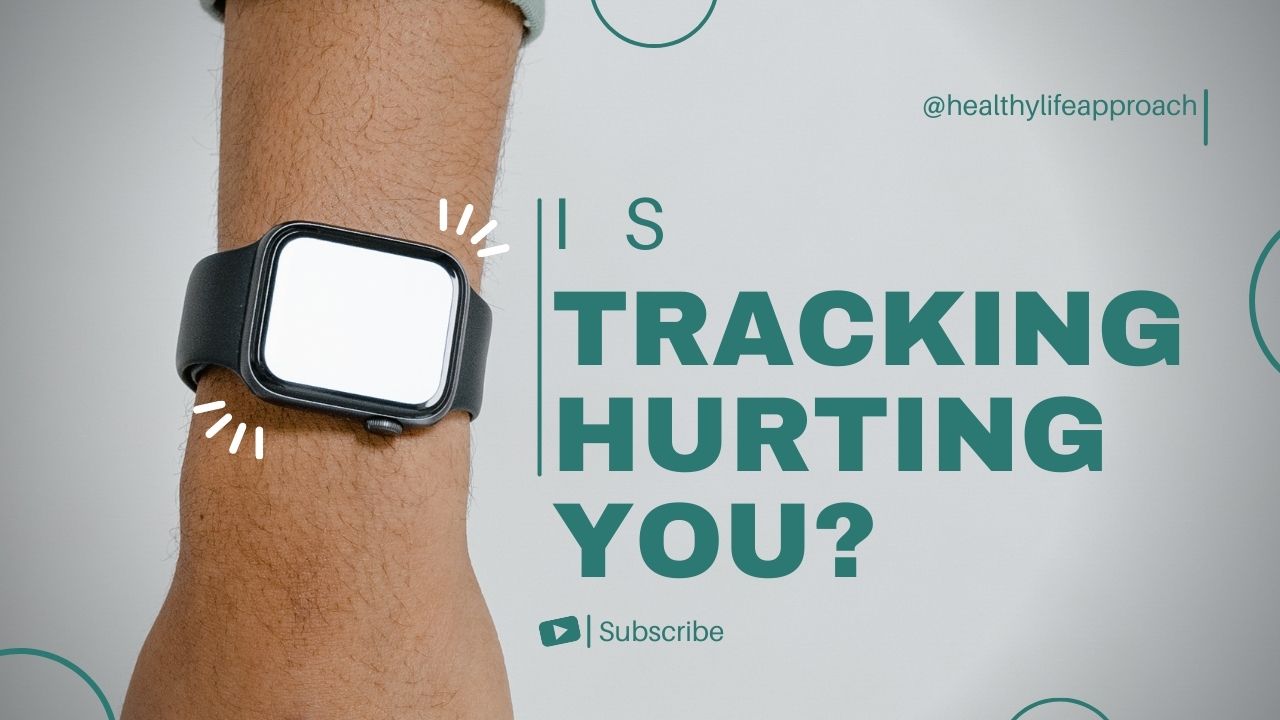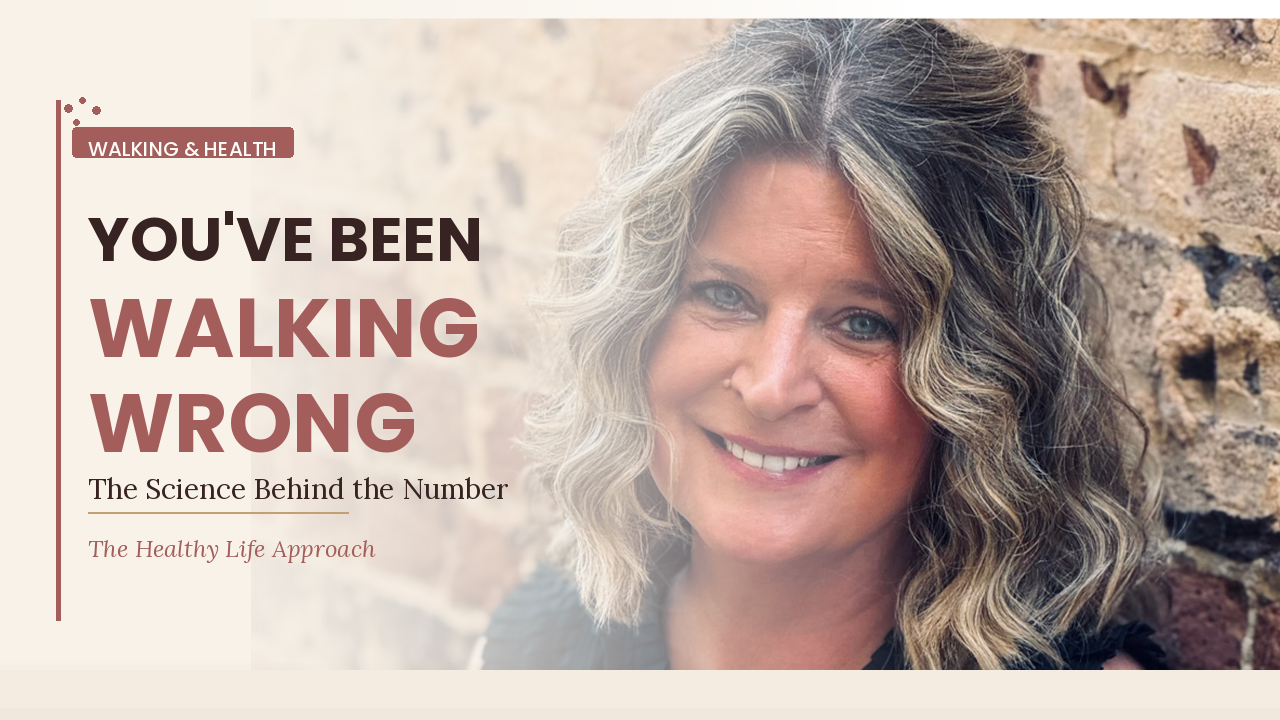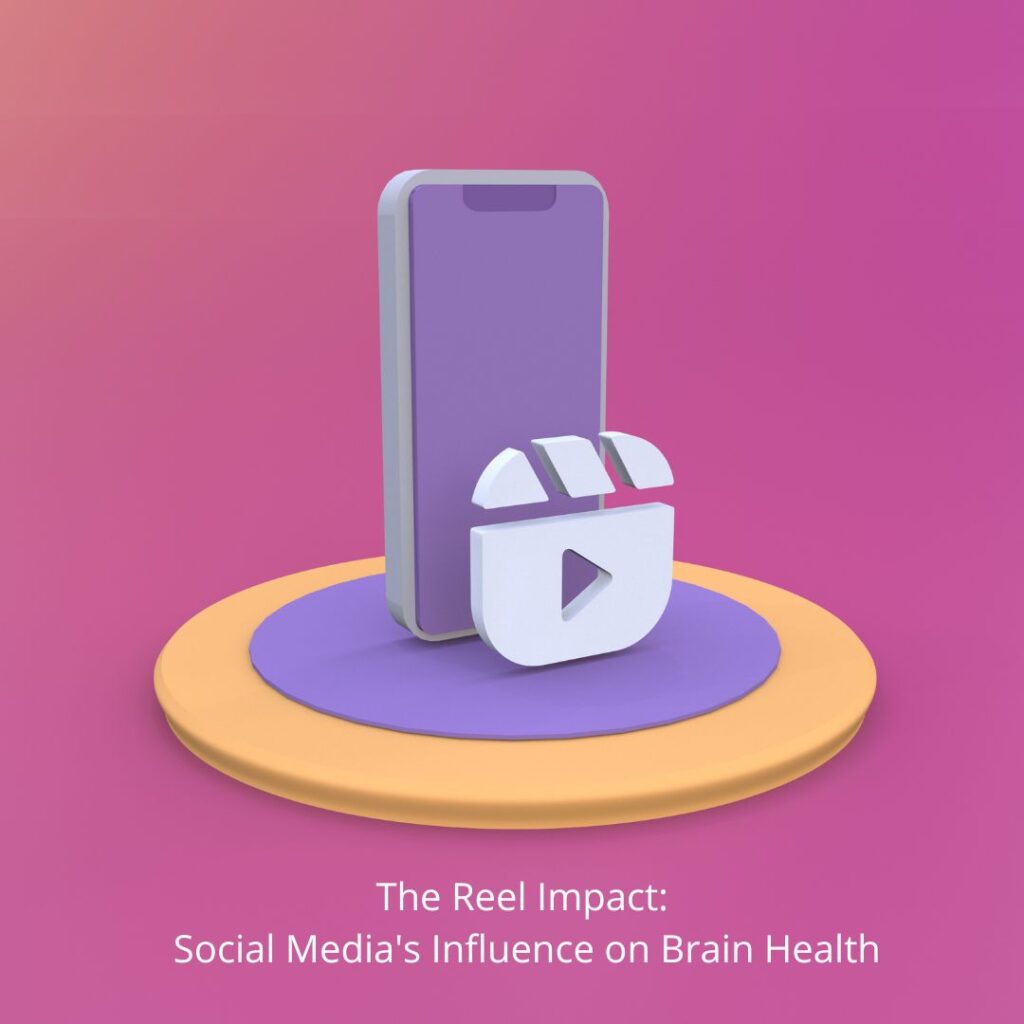
By: Kristen J. Beasley
Social media reels—a few seconds of entertainment, inspiration, or information—seem harmless, right? Yet, as captivating as these short bursts of content are, they could change how our brains function. For health enthusiasts, it’s worth digging into how reels might affect brain health, sleep patterns, and mental well-being. Most women in perimenopause/menopause report brain fog, worsened or new ADHD symptoms, sleep issues, anxiety, and more (Cognition, Mood, and Sleep in Menopausal Transition: The Role of Menopause Hormone Therapy).
I love Instagram and Facebook reels, and I’m not saying you should never watch them again. Once you understand how it impacts your brain health, you may place healthier boundaries in place with timers or time limits within the social media app. After all, I can lose track of time because the algorithms know puppies and brain health topics will keep my attention. At first, I was justifying it as ‘work’ because I am a content creator. However, after watching them, my mind would race, so I realized I needed to use a relatively inexpensive Pomodora timer. The Pomodoro technique is a time management method based on 25-minute stretches of focused work broken by 5-minute breaks. I work 25 minutes, followed by a 5-minute break, which might include watching reels or walking.
Firstly, this post uncovers the effects of social media reels on the brain, including their impact on sleep and mental health. Then, I’ll also share practical tips to help you mitigate these effects. These tips will empower you to prioritize your brain health and live with clarity and balance.
The Impact of Social Media Reels on Brain Activity
Information Overload
One TikTok, Instagram, or Facebook-sized reel after another can overload your brain with constant novelty and entertainment. In fact, according to this Meta article, over 200 billion reels are played each day across Instagram and Facebook. This dopamine rush doesn’t just make you happy in the moment; it encourages your brain to crave more. The cycle of immediate reward followed by the next reel creates a loop that reinforces addictive behaviors.
Dr. Daniel Amen (a renowned psychiatrist and author of Change Your Brain Every Day: Simple Daily Practices to Strengthen Your Mind, Memory, Moods, Focus, Energy, Habits, and Relationships) notes that too much dopamine has been associated with mental health problems like agitation, obsessions or compulsions, psychosis, and even violence. In addition, he also stated that dopamine deficiency is thought to be related to attention deficit hyperactivity disorder (ADD/ADHD). Moreover, low dopamine levels can lead to neurological problems such as Parkinson’s Disease, according to this same article.
Shortened Attention Span
Over time, the constant stimulation from reels rewires your brain for quick engagement. This stimulation negatively impacts your focus on tasks that require sustained attention. The quick flick of a thumb trains the brain to expect instant gratification. The result, is it makes it harder to concentrate on more demanding activities.
Actionable Tip
Start practicing dopamine detox exercises. Take intentional “dopamine fasts” by limiting reel time. Engage in deeper, more fulfilling activities like journaling or enjoying a hobby.
Social Media Reels and ADHD
Likewise, social media reels can worsen ADHD symptoms—many of which mirror the effects of declining estrogen during menopause. In ADDitude’s study, which asked more than 1,500 women with ADHD to answer the question, “Does menopause exacerbate your symptoms of ADHD?” an overwhelming 94% of respondents affirmed the question.
In Psychology Today titled, Is There a Link Between ADHD and Social Media?, the author states social media does not cause ADHD. However, it can exacerbate the existing symptoms, such as impulsivity, and create new challenges.
Stress and Anxiety
Dr. Austin Perlmutter (co-author of Brain Wash: Detox Your Mind for Clearer Thinking, Deeper Relationships, and Lasting Happiness) mentioned in an Instagram post that the average American spends 11+ hours daily consuming media. He stated this is impacting our stress pathways and generating unnecessary anxiety.
Procrastination and Time Loss
Women who are juggling busy schedules during perimenopause or menopause may find that time evaporates while scrolling reels. This time could otherwise have been spent on more restful or productive activities, creating a loop of procrastination. Small doses of watching reels can be entertaining and sometimes even educational. However, endless scrolling (or doom scrolling) can lead to lost productivity and more.
Time blindness is a real issue for people with ADHD. The decline of estrogen in perimenopause and menopause can exacerbate ADHD symptoms, as mentioned earlier. This article in ADD.org highlights that “according to research, the ability to perceive and estimate time is linked to the activity levels of several areas of the brain, including the prefrontal cortex. A lower level of activity in these brain regions may contribute to poorer time perception.“
Context Switching
Marie Forleo (author of Everything is Figureoutable) said the following: One UC Irvine study found that the average worker switches activities about every 3 minutes and 5 seconds. And here’s the kicker — it takes an average of 23 minutes and 15 seconds to get back to the original task. So every time we context switch, we’re destroying our brain’s ability to focus and do deep work.
Actionable Tip
Set app time limits on your phone or use focus apps. This will help you to track screen time usage, that gives you control over your scrolling habits.
Reels and Impact on Memory
Reels might be entertaining, but their fast pace and surface-level content may not give your brain enough time to absorb and store information for the long term. Here’s why: According to the Atkinson-Shiffrin memory model (a fancy way of explaining how our memory works), information needs to be “rehearsed” or revisited to transfer from short-term memory to long-term storage. But when we’re watching one reel after another, there’s usually no time for that rehearsal to happen.
In the research paper, Social Media and Working Memory, the following was noted: “The interaction between individuals and social media platforms has complex effects on cognitive functions, notably working memory. Different user engagement patterns, active (commenting, sharing) and passive (liking, viewing), influence cognitive processes. Excessive social media use is linked to reduced memory performance and increased anxiety, with potential impacts on emotional states.“
What does this mean for you? If you’re spending a lot of time watching reels, you might find that you’re not retaining new information as well as you’d like.
How Do Social Media Reels Affect Sleep?
Scrolling through social media as part of your bedtime routine might seem relaxing. Still, research shows it could be wreaking havoc on your sleep quality. Reels and other forms of short-form content are designed to keep you engaged through elements like captivating visuals, stimulating music, and endless autoplay.
The Science Behind it
Your brain produces melatonin, the sleep hormone, in response to darkness. However, the blue light emitted by your phone screen inhibits melatonin production, making it harder for your body to realize it’s time to wind down.
The Dopamine Loop
The addictive nature of reels lies in their ability to trigger your brain’s reward system. Each time you watch a funny clip or a satisfying tutorial, your brain releases dopamine—the “feel-good” chemical. This reward keeps you scrolling long after you plan to put away your phone, bleeding into the hours you desperately need for rest.
Tips to Protect Your Sleep
- Use Night Mode: Switch your phone to night mode to minimize blue light exposure.
- Set a Digital Curfew: Avoid social media at least one hour before bed to help your brain relax.
- Try the 3-2-1 Rule from The Sleep Doctor: Three hours before bed, finish eating; two hours before bed, wind down work; and one hour before bed, power down your screens.
Social media reels stimulate your brain in ways that differ from long-form content. Since reels rapidly cycle through ideas, sounds, and visuals, they encourage your mind to adapt to an abbreviated attention span.
Practical Takeaways
Build Focus with Intentional Pauses:
Set aside tech-free moments during the day to allow your brain to rest and reset.
Time Block Your Usage:
Limit your scrolling to designated time slots, preventing the overstimulation of your brain.
Engage in Brain-Calming Activities:
Practices like yoga, mindfulness, or even coloring books can retrain your brain to focus better.
How Does Social Media Use Impact Mental Health?
For women in perimenopause or menopause—already navigating hormonal changes that heighten anxiety—social media reels can amplify stress and negatively affect mental health.
Comparison Culture
Reels often depict curated, highlight-reel versions of people’s lives. Social media can lead to harmful comparison cycles, making you question your achievements and happiness. Dr. Austin Perlmutter (co-author of Brain Wash: Detox Your Mind for Clearer Thinking, Deeper Relationships, and Lasting Happiness) emphasizes that excessive comparison triggers stress pathways in the brain, leading to increased cortisol (or stress) levels.
Mood Swings and Anxiety
Social media reels often expose users to upbeat content and distressing news, abruptly switching emotional gears. This unpredictability can feel overwhelming, especially for individuals already dealing with fluctuating emotions due to hormonal shifts.
The quick transitions between emotional states with how reels present positive versus negative events can affect how information is processed and stored:
- Disrupted memory consolidation: The hippocampus, responsible for memory formation, may struggle to file memories when exposed to rapid emotional changes properly.
- Impaired intention recall: Studies suggest combining short videos and rapid context-switching can negatively impact our ability to retain intentions and execute planned actions.
Actionable Advice for Mental Well-being
Curate Your Feed:
Follow pages and creators that make you feel inspired and joyful. Unfollow accounts that create unnecessary stress.
Practice Gratitude:
Spend a few minutes daily focusing on things you’re grateful for to counteract feelings of inadequacy from social media comparison.
Use Apps Mindfully:
Social media timers, built into platforms like Instagram and Facebook, alert you once you spend your daily limit.
Quick Fixes for a Better Night’s Sleep
Establish a Sleep Routine:
Create a tech-free wind-down routine with relaxing activities like journaling, reading, or aromatherapy (lavender essential oil has been a lifesaver for me!).
Try Guided Sleep Coaching:
Platforms like The Sleep Doctor offer personalized 1-1 coaching sessions to improve sleep hygiene.
Keep Devices Out of the Bedroom:
Charge your phone in another room to resist the temptation of late-night scrolling.
Navigating Social Media with Brain Health in Mind
It’s clear that social media reels, with their vibrant visuals and endless scrolls, can impact your brain health, especially during transitional seasons like perimenopause and menopause. They can disrupt sleep, affect mental health, and overstimulate the brain, yet solutions exist to help mitigate these effects.
You can maintain your brain’s well-being by setting healthy boundaries, practicing mindfulness, and choosing your social media habits wisely without swearing off your favorite platforms entirely.
If you’re struggling with anxiety or sleep disturbances, consider seeking personalized sleep coaching from The Sleep Doctor. Some great books on the subject include Why We Sleep by Matthew Walker and Sleep Smarter: 21 Essential Strategies to Sleep Your Way to A Better Body, Better Health, and Bigger Success: A Longevity Book by Shawn Stevenson. Combining expert advice with structured strategies will help you restore balance and clarity to your day-to-day life.
Join the Movement
Stay informed, get inspired, and connect with a like-minded community of women passionate about brain and hormone health. Subscribe to our newsletter below and explore how you can elevate your mind and life. Together, we’ve got this!
Medical and Affiliate Disclaimer
I am not a licensed medical professional, and the information I’ve shared in this blog post is for general informational purposes only. The content of this blog post is not intended to substitute for professional medical advice, diagnosis, or treatment. Always seek the advice of your physician or other qualified health provider with any questions you may have regarding a medical condition.
This blog post may contain affiliate links. As an Amazon Associate and affiliate for different brands, I earn from qualifying purchases at no additional cost to you.
